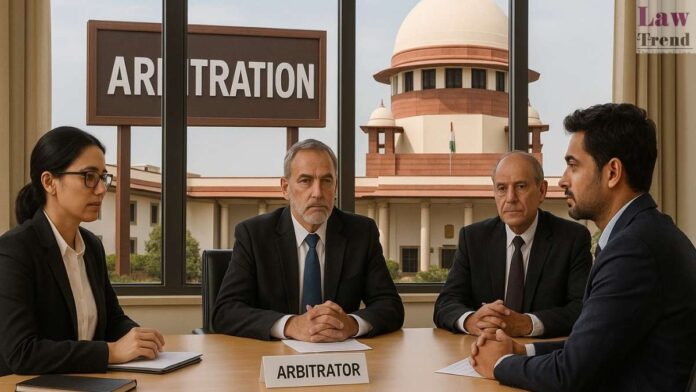The Supreme Court of India has reaffirmed a crucial principle of arbitration law, ruling that an individual who is ineligible to be an arbitrator due to a conflict of interest cannot nominate another person to act as a sole arbitrator. A bench comprising Justice Manoj Misra and Justice Ujjal Bhuyan set aside a Delhi High
To Read More Please Subscribe to VIP Membership for Unlimited Access to All the Articles, Download Available Copies of Judgments/Order, Acess to Central/State Bare Acts, Advertisement Free Content, Access to More than 4000 Legal Drafts( Readymade Editable Formats of Suits, Petitions, Writs, Legal Notices, Divorce Petitions, 138 Notices, Bail Applications etc.) in Hindi and English.




